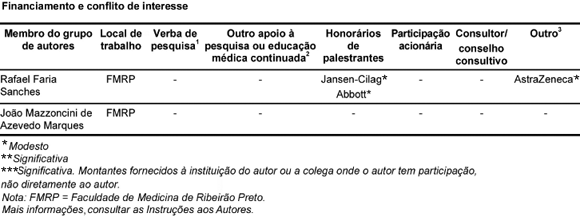OBJECTIVE: Evaluate the relationship between acute and chronic use of cannabis and mood changes. METHOD: Articles were selected by electronic search in PubMed. Chapters in books and reference lists of selected articles were also reviewed. As the research did not involve humans, there was no evaluation by a Research Ethics Committee. RESULTS: High rates of comorbidity between use/abuse/dependence of cannabis and affective disorders in longitudinal studies and in clinical samples were observed. Longitudinal studies indicate that, in long-term, the higher use of cannabis is associated with an increased risk of developing bipolar disorder, and probably, major depression in subjects initially without affective disorder, but was not found increased risk of cannabis use among those initially only with mania or depression. Another important observation is that substance abuse in bipolar patients may be associated with a number of negative characteristics, such as difficulty in recovering the affective symptoms, more hospitalizations, poor compliance with treatment, increased risk of suicide, aggression and a poor response to lithium. Psychosocial and pharmacological treatments are indicated for the management of comorbidity between cannabis and affective disorders. CONCLUSION: The relationship between cannabis use and mood changes are observed both in the epidemiological research and in the clinical settings.
Cannabis; Depression; Bipolar disorder; Risk factors; Cross sectional studies

